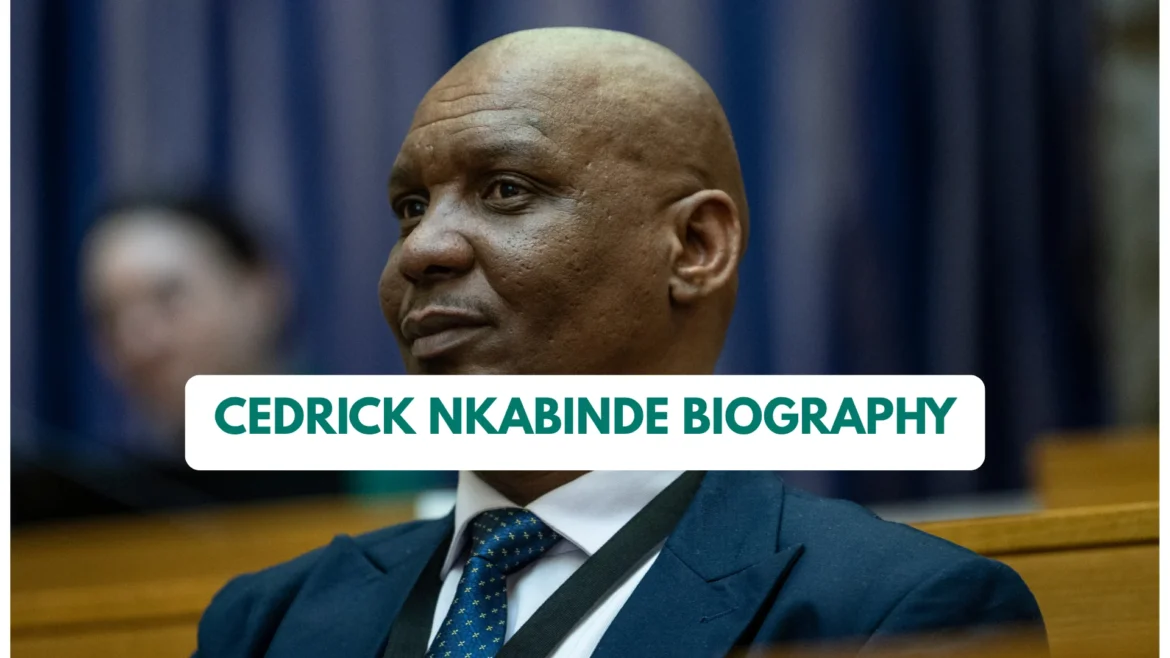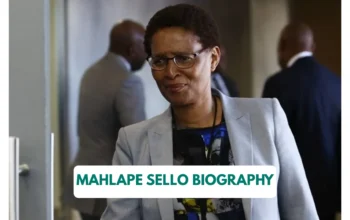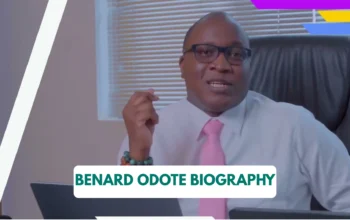Cedrick Nkabinde (sometimes spelled Cedric Nkabinde) is a South African former police investigator who rose to national prominence after his appointment as Chief of Staff to Police Minister Senzo Mchunu.
Over the past year he has featured in media and parliamentary hearings because of his role in high-profile allegations and political controversies related to policing oversight and alleged interference within law-enforcement structures.
Early life and education
Publicly available profiles indicate that Cedrick Nkabinde hails from KwaZulu-Natal and pursued formal studies in policing. He holds a national diploma in policing and later completed a BTech in policing — qualifications he has described as the basis for his career in investigative work and public oversight. These credentials were cited during public testimony and press profiles of his career.
Policing and investigative career
Nkabinde began his career in law-enforcement, joining the South African Police Service (SAPS) and later moving to the Independent Police Investigative Directorate (IPID) — the agency that investigates police misconduct. At IPID he served as an investigator and rose to the rank of assistant director, where he handled cases related to police conduct and oversight. After leaving IPID in 2018 he worked in the private sector as a forensic manager for various financial institutions before returning to public service in a political office.
Rise to Chief of Staff
In 2024–2025 Cedrick Nkabinde was appointed Chief of Staff to Senzo Mchunu, the Minister of Police. The appointment thrust him into the national spotlight because the Ministry of Police is central to many of South Africa’s security and accountability debates. Supporters argue his policing and investigative background made him a fit for the role; critics questioned the appointment process and highlighted inconsistencies in statements and affidavits that would later become focal points in parliamentary scrutiny.
Parliamentary hearings and controversies
Nkabinde’s public profile rose further when he appeared before an Ad Hoc Committee of Parliament investigating allegations involving senior police figures, corruption, and political interference. His testimony prompted confrontations with Members of Parliament and led to claims that he had offered misleading information in his parliamentary statement. This culminated in calls for further investigation and even announcements from political parties seeking to open perjury cases. The hearings have been widely covered in national media and sparked debates about the politicisation of oversight processes.
Notable allegations and public reaction
During his testimony Nkabinde made several high-profile claims, including allegations about plots and relationships within policing leadership. Some of his statements have been described in the press as “shocking” or “controversial,” and in some instances MPs accused him of misleading the committee. The political fallout included calls for formal investigations, allegations of perjury, and intense media scrutiny — all of which amplified public interest in his background and the nature of his professional relationships.
Administrative and legal developments
Following the parliamentary sessions, opposition parties and watchdogs signalled intentions to pursue legal remedies where they believed declarations were inconsistent or misleading. The EFF publicly announced the intention to open a perjury case related to discrepancies in Nkabinde’s affidavit submitted to Parliament. These administrative and legal moves underscore how appointments and witness testimony in politically sensitive portfolios can quickly escalate into formal investigations.
Public perception and media coverage
Media outlets across South Africa — from News24 to Daily Maverick and IOL — have covered Nkabinde’s rise and the subsequent parliamentary fallout extensively. Coverage has ranged from profiles of his career to live reporting on hearings and analyses of the political ramifications. This broad coverage has made him a polarising figure: lauded by some for a career in policing and investigative work, criticised by others for the ambiguities and allegations that followed his entrance into an overtly political role.
What we know — and what remains unclear
Reliable facts: Nkabinde has a policing background, served at IPID, worked in the private sector as a forensic manager, and was appointed Chief of Staff to the Minister of Police. He has testified before Parliament’s Ad Hoc Committee and faces intense scrutiny over statements made in that forum. What remains unclear and subject to investigation are the precise veracity of some of his parliamentary statements and the ultimate legal and administrative outcomes of allegations against him.
FAQs
Who is Cedrick Nkabinde?
Cedrick Nkabinde is a South African former police investigator who became Chief of Staff to the Minister of Police, Senzo Mchunu, and later testified before Parliament’s Ad Hoc Committee investigating policing and corruption issues.
What is his educational background?
Public records and press reports indicate he holds a national diploma in policing and a BTech in policing, which he has cited in testimony and professional profiles.
Why did he appear before Parliament?
He appeared as a witness before an Ad Hoc Committee probing allegations of political interference and misconduct within the police and related institutions; his testimony and affidavits were scrutinised by MPs.
Has he been charged with a crime?
As of the most recent coverage, political parties announced intentions to explore perjury or related legal avenues over affidavit discrepancies, but readers should check the latest reporting for updates on any formal charges.
Where can I read primary documents related to complaints or investigations involving Nkabinde?
Primary documents such as Public Protector reports and parliamentary records have been referenced in media reporting; the Public Protector’s site and official parliamentary records are starting points for primary documents.
Conclusion
Cedrick Nkabinde’s career path — from policing and investigative work at IPID to a political appointment as Chief of Staff in the Ministry of Police — has placed him at the centre of a highly charged national conversation about policing, oversight and political influence in South Africa. While he brings a background in policing and investigations to the public record, his recent parliamentary testimony and the reactions it provoked show how roles in the interface of security and politics quickly attract scrutiny. For readers seeking to follow developments, reliable national outlets and official documents (e.g., parliamentary transcripts, the Public Protector) offer the best route to the most current, primary information.




